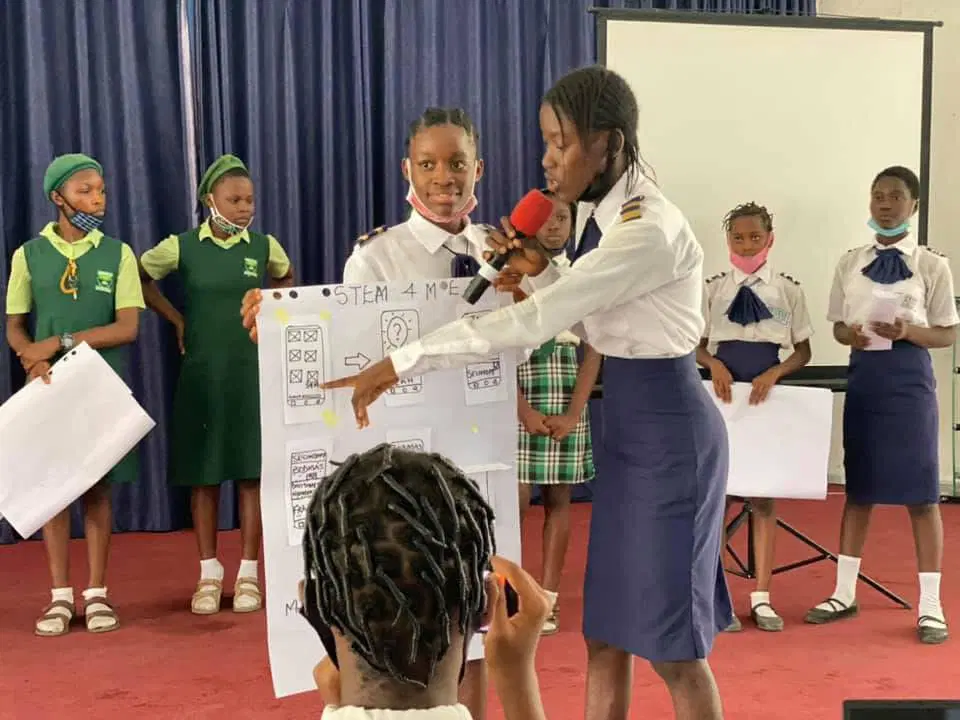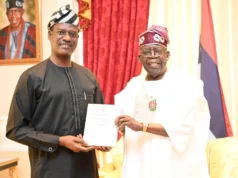In a dynamic and inspiring movement unfolding in Nigeria, Grace Ihejiamaizu, a trailblazing social innovator and youth empowerment advocate, is spearheading a transformative effort to bridge the persistent gender imbalance in STEM—Science, Technology, Engineering, and Mathematics. As the South‑South Nigeria Ambassador for Technovation Girls, Grace is overseeing an initiative that blends grassroots action, global collaboration, and personal mentorship to uplift girls from underserved communities. Her vision is ambitious: to reshape Nigeria’s tech landscape, one mobile app at a time.
Table of Contents
A Vision Rooted in Empowerment
For too long, structural and cultural barriers have excluded girls in Nigeria from STEM fields, often leaving them without the confidence, resources, or visibility needed to thrive. Recognising this gap early in her career, Grace dedicated the past decade to melding education, entrepreneurship, and youth engagement. Her passion grew into a mission: to ensure that girls, especially in regions like Cross River and Akwa‑Ibom, gain both access and agency in the tech world.
Her guiding principle is simple yet profound: equip girls with technical skills, yes—but also instil in them a belief. “When girls are given the tools and mentorship,” she explains, “they don’t just build apps. They build confidence, purpose, and future leadership.”

Technovation Girls: A Catalyst for Change
Technovation Girls is a global program empowering girls to learn coding, app development, and entrepreneurship. Operating across more than 100 countries, it supports participants through a 12‑week curriculum, culminating in local pitch events and a chance at global recognition. Grace assumed leadership of the South‑South Nigeria chapter in 2019. Under her direction, participation has soared, drawing sponsors, educators, and community advocates.
In its recent edition, the program hosted 20 teams of girls (aged 8–18) from under-resourced communities in Uyo and Calabar. These participants presented software solutions addressing critical local challenges: environmental degradation, healthcare access, mental wellbeing, and educational inclusion. Notably, many apps incorporated sign-language features, expanding digital accessibility for users with disabilities.
More Than Inspiration: Mentorship in Action
What truly sets this initiative apart is the mentorship ecosystem Grace has built. A cadre of volunteer mentors, teachers, and tech advocates has stepped forward to nurture the girls’ talents. Under their guidance, participants refine their ideas, sharpen pitching skills, and gain real-world insight into entrepreneurship.
For many girls from these communities, the experience marks their first time standing before a formal panel of judges. The opportunity to present publicly is more than a confidence booster—it’s a reclamation of voice and visibility.
Leading Teams to Global Recognition
Grace’s influence isn’t just local—it’s international. In 2015, with her support, Team Charis became the first Nigerian and African team to win the Technovation Global Pitch in San Francisco. Their achievement resonated far beyond the stage and even became the subject of a documentary produced by Google on YouTube.
This global win placed Nigeria and African girls in STEM on the world’s radar. It reinforced Grace’s conviction that hidden talent can flourish when given both opportunity and belief.
Shaping Future Innovators from Marginalised Communities
Reflecting on the journey, Grace observes, “Africa’s next generation of changemakers will come from the margins—where girls are rarely told they can lead in tech. That’s who I show up for.”
Her words echo a vital truth: talent exists everywhere, but opportunities often do not. By giving marginalised girls a platform, she’s shifting the narrative—and demonstrating that problem solvers emerge from all corners.
Spotlighting Standout Projects
Several teams made notable strides:
- Inclusive Education App: Developed to support students with hearing impairments, this app uses sign‑language modules to aid classroom learning—a powerful step toward educational inclusion.
- Environmental Monitoring Tool: Designed to help communities track pollution and water quality, empowering local activism and data-driven responses.
- Mobile Health Access: A telehealth solution to connect remote communities with vital medical services, bridging gaps in healthcare provision.
These apps weren’t just theoretical; they are prototypes that respond directly to on-the-ground needs, underscoring the strategic relevance of the program.

Growing Momentum in the South‑South Region
Grace’s leadership since 2019 has translated into significant growth. What began as nascent participation has expanded into a robust program attracting educators, NGOs, and tech firms. Stakeholder interest signals a broader shift: closing gender gaps in STEM isn’t merely symbolic—it’s a developmental imperative.
Support from institutions like the iKapture Centre for Development and international youth platforms has further bolstered capacity, placing girls on pathways to global opportunities.
What Comes Next: Scaling Ambitions
This year, three teams advanced to the semi-finals, earning a chance to pitch at the Technovation World Summit. For Grace and the girls, it’s another validation, spotlighting Nigeria’s growing presence on the global innovation stage.
But even as global recognition is welcomed, the work on the ground remains paramount. Grace’s ambition is to expand infrastructure: establishing after‑school coding clubs, forging university partnerships, and recruiting volunteer mentors. By deepening local ecosystems, she aims to foster continuous growth and impact.
A Moral and Economic Imperative
While gender equality remains a moral necessity, the economic calculus is equally compelling. Studies show diverse teams outperform homogeneous ones in creativity and problem‑solving. Moreover, Africa’s tech sector stands at an inflexion point, poised to leap forward. Ignoring half the population is no longer viable.
Grace’s initiative serves as a microcosm for broader transformation. When girls innovate and gain visibility, they shift societal expectations—and pave new pathways for others.
Policy, Collaboration, and Sustainability
Looking ahead, Grace envisions policy dialogues that strengthen STEM access:
- Policy Advocacy: Engaging with education ministries to embed coding and digital literacy into national curricula, especially in underserved regions.
- Strategic Partnerships: Collaborating with tech firms and multilateral agencies to fund infrastructure and mentorship programs.
- Alumni Networks: Launching an empowered network of alumnae who can mentor new cohorts, creating enduring peer support.
- Community Outreach: Hosting public workshops, tech fairs, and demo days to foster community understanding and support.
These strategies reflect her recognition: sustainable change demands systemic shifts, not just one-off programs.
Voices of Change: Girls Speak
Behind the stats and programs are the girls whose lives are being transformed. One participant shared:
“Before, I never imagined building an app. Now I believe I can solve problems in my community.”
Another high schooler revealed:
“Presenting in front of judges made me feel seen. For the first time, I feel my voice matters.”
These testimonials underscore the larger mission:
Empowerment isn’t abstract—it’s personal.
A Beacon for Africa—and Beyond
Grace Ihejiamaizu personifies a new kind of leadership—one rooted in humility and action. She’s proving that impactful, locally driven efforts can create global ripple effects. By uplifting marginalised girls, she’s igniting a chain reaction that could reshape Nigeria’s—and Africa’s—STEM future.
In doing so, she’s sending a powerful message: if we open doors for girls, we invest in our collective progress.

Conclusion: Rewriting the Narrative
The work of Grace and the dozens of young women she mentors is more than a series of tech competitions—it’s a bold statement about inclusion, potential, and systemic transformation. When girls in Cross River and Akwa‑Ibom build apps addressing mental health or clean water, they don’t just innovate—they rewrite what’s possible.
As audiences around the world watch Nigeria’s Technovation Girls grow, Grace remains focused:
“This is more than a programme,” she says. “It’s a platform to reimagine leadership—and to show the world that the future will be shaped by girls from every corner.”
Her vision of confident, creative, and capable young women is embedded in each app pitched, each mentor pair formed, and each community that leans in. And as the initiative grows, so too does the promise of a future where girls lead, innovate, and inspire in STEM—on their terms.
Join our WhatsApp community
Join Our Social Media Channels:
WhatsApp: NaijaEyes
Facebook: NaijaEyes
Twitter: NaijaEyes
Instagram: NaijaEyes
TikTok: NaijaEyes





